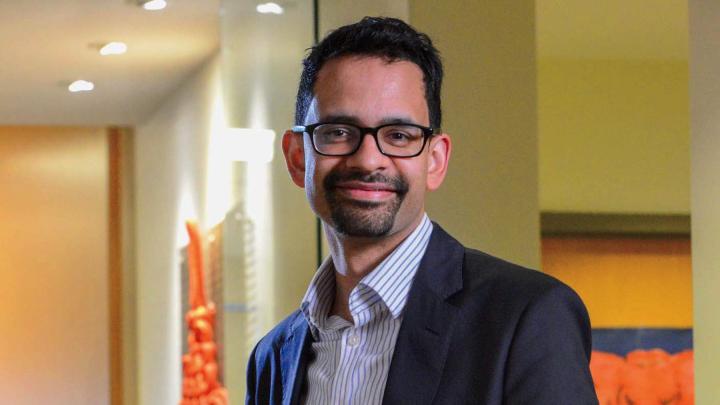“Picture the Bay of Bengal as an expanse of tropical water: still and blue in the calm of the January winter, or raging and turbid with silt at the peak of the summer rains,” writes historian Sunil Amrith in Crossing the Bay of Bengal: The Furies of Nature and the Fortunes of Migrants. “Now imagine the sea as a mental map: as a family tree of cousins, uncles, sisters, sons, connected by letters and journeys and stories.” Crossing’s ambitious mental map tells the story of how one in four people in the modern world came to live in countries that border the Bay—a sea echoing with a fugue of languages from Malay to Portuguese, Arabic to Dutch. An elegant wordsmith whose research and writing have earned him major awards from the European Research Council and the British Academy, Amrith credits novelists Michael Ondaatje and Amitav Ghosh’s stories of migration with influencing his outlook as an historian. His own biography is peripatetic: born in Kenya to parents from the Bay-bounded south Indian state of Tamil Nadu, schooled first in Singapore, and then at Cambridge, where his “dream job at 18 was working for the UN.” But history let him explain issues he cares about, and led him to stay in Cambridge for a doctorate, focused on global-health organizations in India and Southeast Asia. He came to Harvard in 2015 as Mehra Family professor of South Asian studies and professor of history, and will become chair of South Asian studies in 2018. He hopes the department can convey “the vitality and excitement of studying South Asia” in the twenty-first century through collaborations across disciplines and regional boundaries—goals he’s pursuing as co-director of the Center for History and Economics and in classes co-taught with colleagues in East Asian studies.
Sunil Amrith

Sunil AmrithPhotograph by Jim Harrison
You might also like
Breaking Bread
Alexander Heffner ’12 plumbs the state of democracy.
Reading the Winds
Thai sailor Sophia Montgomery competes in the Olympics.
Chinese Trade Dragons
How Will China’s Rapid Growth in the Clean Technology Industry Reshape U.S.-China Policy?
Most popular
More to explore
Harvard Philosophy Professor Alison Simmons on "Being a Minded Thing"
A philosopher on perception, the canon, and being “a minded thing”







